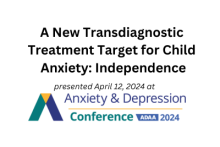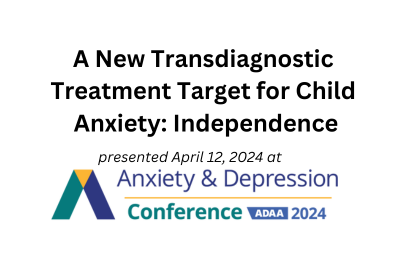
This presentation was recorded at the ADAA 2024 Conference and is not eligible for CE/CME credit.
Exposure-based CBT is considered the front-line treatment for anxiety disorders in children. Most children who are administered exposure experience significant improvements in anxiety symptoms. However, exposure-based CBT has not generally outperformed treatment as usual, active control conditions, or medication. These limitations are a growing emergency in the context of rapidly increasing worldwide rates of anxiety among children and adolescents (Haidt and Twenge, 2023).
New ideas are required to push past this wall of limited effectiveness. One exciting transdiagnostic candidate for intervention is childhood independence. Independence-focused treatment (IFT) is a child and parent cognitive-behavioral intervention that seeks to dramatically increase independence in children by collaboratively planning fun yet challenging activities that kids can do alone or with other kids, without the presence of parents. Some Independence Activities (IAs) involve mild physical risk to provide children with experience in assessing and dealing with danger. Examples of IAs include taking a bus alone, whittling a branch with a knife, going to the supermarket to grocery shop, and cooking a meal. The availability and frequency of independent activities in childhood have plummeted over the past two decades. Increasing independence in children may target practically all parent and child mechanisms identified in the etiology and maintenance of child anxiety.




















